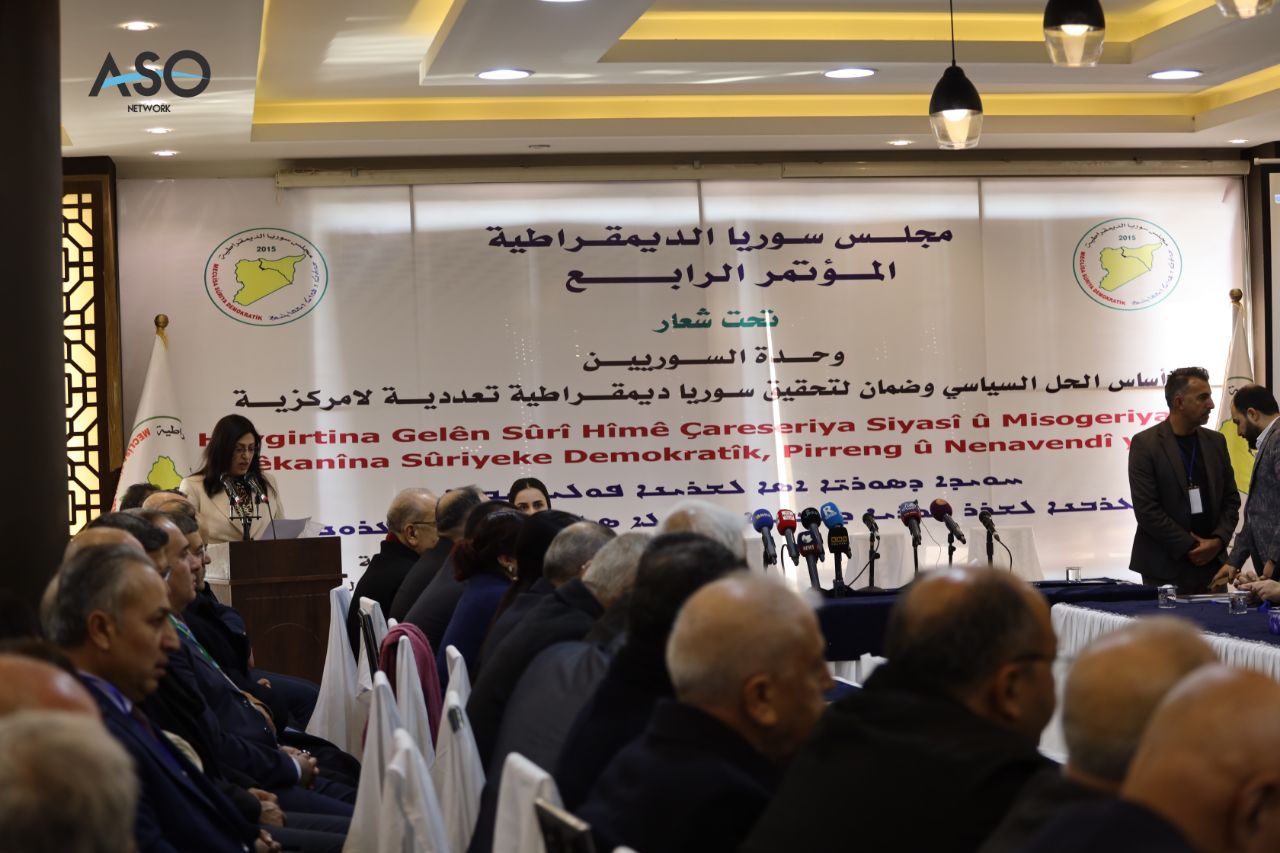News
The Syrian Democratic Council holds its fourth session with the participation of representatives from all Syrian governorates

The fourth conference of the Syrian Democratic Council (SDC) was held on Wednesday, December 20, 2023, in the city of Raqqa, with the participation of representatives of all sects and components of the regions of North-East Syria, in addition to representatives of all Syrian governorates, parties, blocs, and independent figures.
The conference was launched under the slogan “The unity of Syrians is the basis for a political solution and a guarantee for achieving a democratic, pluralistic, decentralized Syria.”
Among the conference’s activities was agreeing on the structure of the Syrian Democratic Council in line with political developments, especially with the Autonomous Administration of North and East Syria’s ratification of the social contract issued by the General Council (in North-East Syria region) on the 13th of this month.

According to what “Ali Rahmoun,” a member of the executive body of the Syrian Democratic Council, reported to Aso News Network: “The conference was held in these difficult circumstances, and a decade after the Syrian crisis, to emphasize the importance of the political solution, and to give all political and national forces the opportunity to contribute to achieving a pluralistic state.”
Democratic decentralization, without marginalization or exclusion of the role of any component in it.”
Hussein Othman, the co-chair of the Executive Council in North-East Syria, told Aso News Network, “Holding the conference at the current stage came as an emphasis on the necessity of finding a formula for a peaceful solution to the Syrian crisis, in light of the Syrian political situation, and discussing the latest developments in the Syrian situation during the current stage, and this what was discussed by members during the closed session of the conference.”

The conference produced several outcomes that were included in the final statement, the most important of which was the agreement to consider the greatest challenge facing Syrians as a whole to be the threat of the return of terrorist organizations, which contributed to the fragmentation of Syrian society and breaking its ambitions. The statement indicated that democratic transformation will represent the gateway to addressing many democratic issues in the region.
The final statement also emphasized the necessity of adopting the participatory political and economic concept in Syrian society, attributing the cause of the Syrian crisis to the exclusionary mentality that rejects the other, adopted by the forces opposing the Syrian regime, which is dependent on external agendas.
The statement indicated the Council’s commitment to the Syrian-Syrian discourse as the only way to resolve the crisis, and urged its members to make efforts to complete the Council’s goals at the national level, considering that the Syrian Democratic Council still represents the most important Syrian project with a national message that expresses the reality of societal diversity and embodies the values of tolerance and coexistence.

During its statement, the Council also pointed to the importance of the role of Arab countries in resolving the Syrian crisis, welcoming any initiative that seeks to achieve the desired goal. It also stressed the importance of communication and coordination with the various international forces active in the Syrian issue, most notably the United Nations, the Security Council countries, the European Union, the Arab League, and the Council of Ministers. Gulf Cooperation.
The statement emphasized the necessity of working to restore Syria’s complete sovereignty over its territory, to end all cases of occupation of Syrian lands, rejecting all attempts at demographic change, displacement of indigenous people, and confiscation of their lands and property, carried out by the Turkish occupation army in cooperation with extremist Syrian factions.
It stressed that the Kurdish issue is considered a national issue par excellence, which should be resolved fairly in accordance with international covenants and conventions within the new Syrian constitution, and that it is considered an entry point for resolving the issues of other national components, including the issue of the Syriac-Assyrian component.
During its session, the conference also approved its new bylaws, and took a set of decisions related to the organizational aspect, including the joining of ten forces, parties, and personalities, which contributes to increasing flexibility, with the aim of raising the Council’s performance in the next stage.

The conference concluded its session with the election of Mahmoud Al-Musalat and Laila Qahraman as joint presidents of the Syrian Democratic Council, and it was agreed to delegate the new presidency to follow up on the completion of the formation of the General Council.
